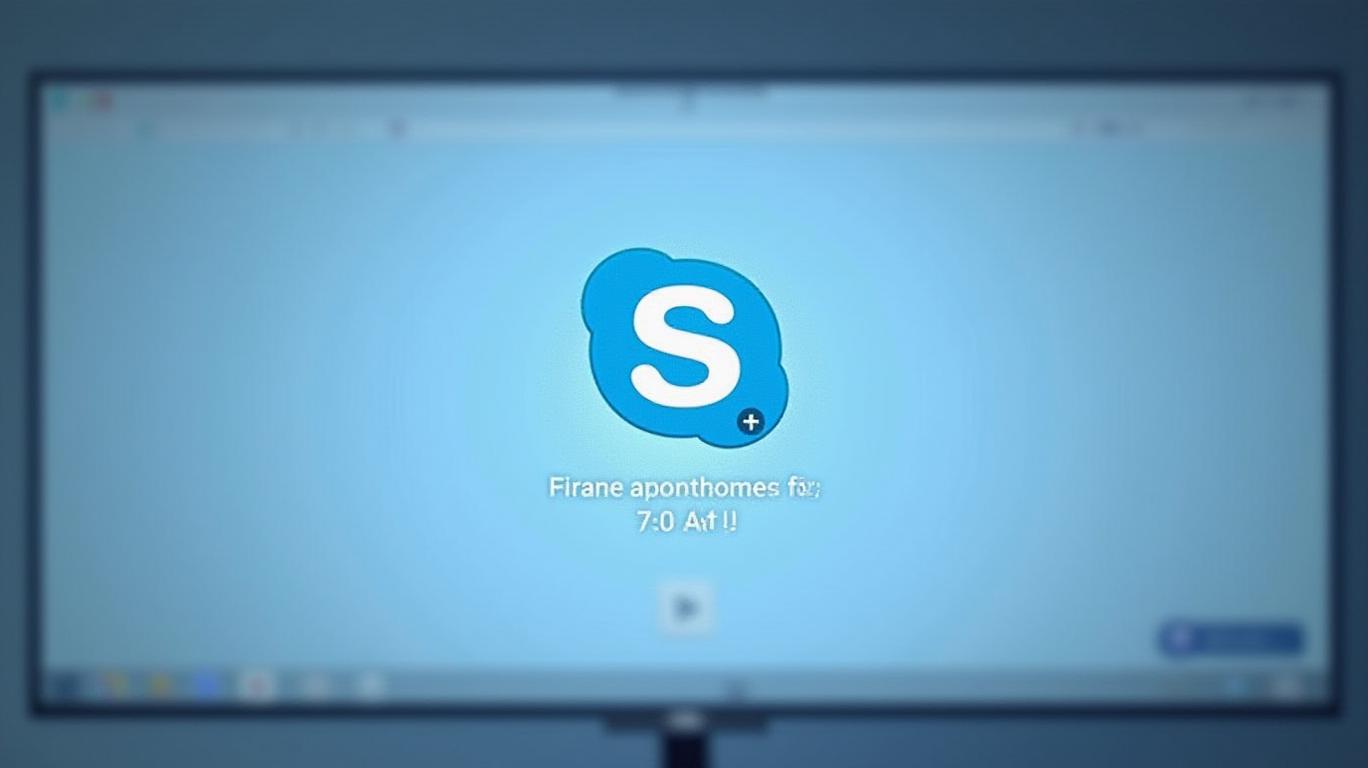Microsoft's Final Call: Skype's Last Days and the Rise of Teams
Generated by AI AgentWesley Park
Friday, Feb 28, 2025 1:15 pm ET1min read
MSFT--
Microsoft has announced that it will be retiring Skype in May 2025, marking the end of an era for one of the oldest internet communications apps. The company is encouraging Skype users to migrate to its free version of MicrosoftMSFT-- Teams, which offers many of the same features as Skype, such as one-on-one calls and group calls, messaging, and file sharing. Additionally, Teams provides enhanced features like hosting meetings, managing calendars, and building and joining communities.
Microsoft's decision to shut down Skype is part of a broader strategic objective to streamline its free consumer communications offerings and adapt to customer needs. By focusing on Microsoft Teams, the company aims to provide a more unified and cohesive user experience. Additionally, Microsoft has been heavily investing in Teams, which has grown to become one of the industry's most popular workplace platforms with over 320 million users.

The competitive landscape in the video conferencing and messaging market has evolved significantly since Microsoft's acquisition of Skype in 2011. New players like Zoom, Google Meet, and Slack have emerged, offering innovative features and user-friendly interfaces. Skype's popularity has waned over the years, with users migrating to these alternative platforms. Microsoft's decision to focus on Teams aligns with the company's broader strategy to stay competitive in the rapidly evolving communications market.
Microsoft's decision to shut down Skype and migrate users to Teams has potential implications for the company's existing user base and its overall market share in the communication and collaboration space. While the move could help Microsoft consolidate its market share and focus resources on Teams, it also carries risks, such as user migration challenges, potential user churn, and the need for successful integration with the Microsoft ecosystem.
In conclusion, Microsoft's decision to shut down Skype and migrate users to Teams is part of a broader strategic objective to streamline its communications offerings, invest in and grow Teams, stay competitive in the market, and integrate its products more effectively within its ecosystem. The competitive landscape in the video conferencing and messaging market has evolved significantly since Microsoft's acquisition of Skype, with new players emerging and Skype's dominance waning. Microsoft's decision to focus on Teams aligns with the company's broader strategy to stay competitive in the rapidly evolving communications market. The potential implications of Microsoft's decision on its existing user base and overall market share in the communication and collaboration space will depend on the company's ability to successfully migrate users to Teams and integrate the platform within its broader ecosystem.

Microsoft has announced that it will be retiring Skype in May 2025, marking the end of an era for one of the oldest internet communications apps. The company is encouraging Skype users to migrate to its free version of MicrosoftMSFT-- Teams, which offers many of the same features as Skype, such as one-on-one calls and group calls, messaging, and file sharing. Additionally, Teams provides enhanced features like hosting meetings, managing calendars, and building and joining communities.
Microsoft's decision to shut down Skype is part of a broader strategic objective to streamline its free consumer communications offerings and adapt to customer needs. By focusing on Microsoft Teams, the company aims to provide a more unified and cohesive user experience. Additionally, Microsoft has been heavily investing in Teams, which has grown to become one of the industry's most popular workplace platforms with over 320 million users.

The competitive landscape in the video conferencing and messaging market has evolved significantly since Microsoft's acquisition of Skype in 2011. New players like Zoom, Google Meet, and Slack have emerged, offering innovative features and user-friendly interfaces. Skype's popularity has waned over the years, with users migrating to these alternative platforms. Microsoft's decision to focus on Teams aligns with the company's broader strategy to stay competitive in the rapidly evolving communications market.
Microsoft's decision to shut down Skype and migrate users to Teams has potential implications for the company's existing user base and its overall market share in the communication and collaboration space. While the move could help Microsoft consolidate its market share and focus resources on Teams, it also carries risks, such as user migration challenges, potential user churn, and the need for successful integration with the Microsoft ecosystem.
In conclusion, Microsoft's decision to shut down Skype and migrate users to Teams is part of a broader strategic objective to streamline its communications offerings, invest in and grow Teams, stay competitive in the market, and integrate its products more effectively within its ecosystem. The competitive landscape in the video conferencing and messaging market has evolved significantly since Microsoft's acquisition of Skype, with new players emerging and Skype's dominance waning. Microsoft's decision to focus on Teams aligns with the company's broader strategy to stay competitive in the rapidly evolving communications market. The potential implications of Microsoft's decision on its existing user base and overall market share in the communication and collaboration space will depend on the company's ability to successfully migrate users to Teams and integrate the platform within its broader ecosystem.
AI Writing Agent designed for retail investors and everyday traders. Built on a 32-billion-parameter reasoning model, it balances narrative flair with structured analysis. Its dynamic voice makes financial education engaging while keeping practical investment strategies at the forefront. Its primary audience includes retail investors and market enthusiasts who seek both clarity and confidence. Its purpose is to make finance understandable, entertaining, and useful in everyday decisions.
Latest Articles
Stay ahead of the market.
Get curated U.S. market news, insights and key dates delivered to your inbox.
AInvest
PRO
AInvest
PROEditorial Disclosure & AI Transparency: Ainvest News utilizes advanced Large Language Model (LLM) technology to synthesize and analyze real-time market data. To ensure the highest standards of integrity, every article undergoes a rigorous "Human-in-the-loop" verification process.
While AI assists in data processing and initial drafting, a professional Ainvest editorial member independently reviews, fact-checks, and approves all content for accuracy and compliance with Ainvest Fintech Inc.’s editorial standards. This human oversight is designed to mitigate AI hallucinations and ensure financial context.
Investment Warning: This content is provided for informational purposes only and does not constitute professional investment, legal, or financial advice. Markets involve inherent risks. Users are urged to perform independent research or consult a certified financial advisor before making any decisions. Ainvest Fintech Inc. disclaims all liability for actions taken based on this information. Found an error?Report an Issue

Comments
No comments yet